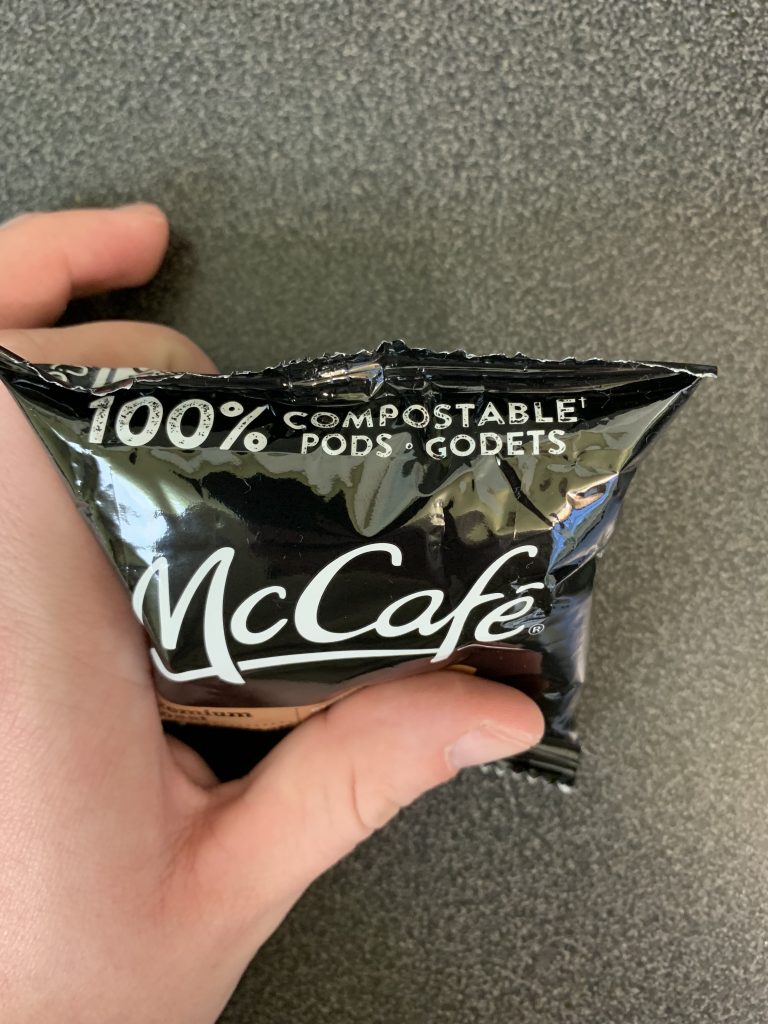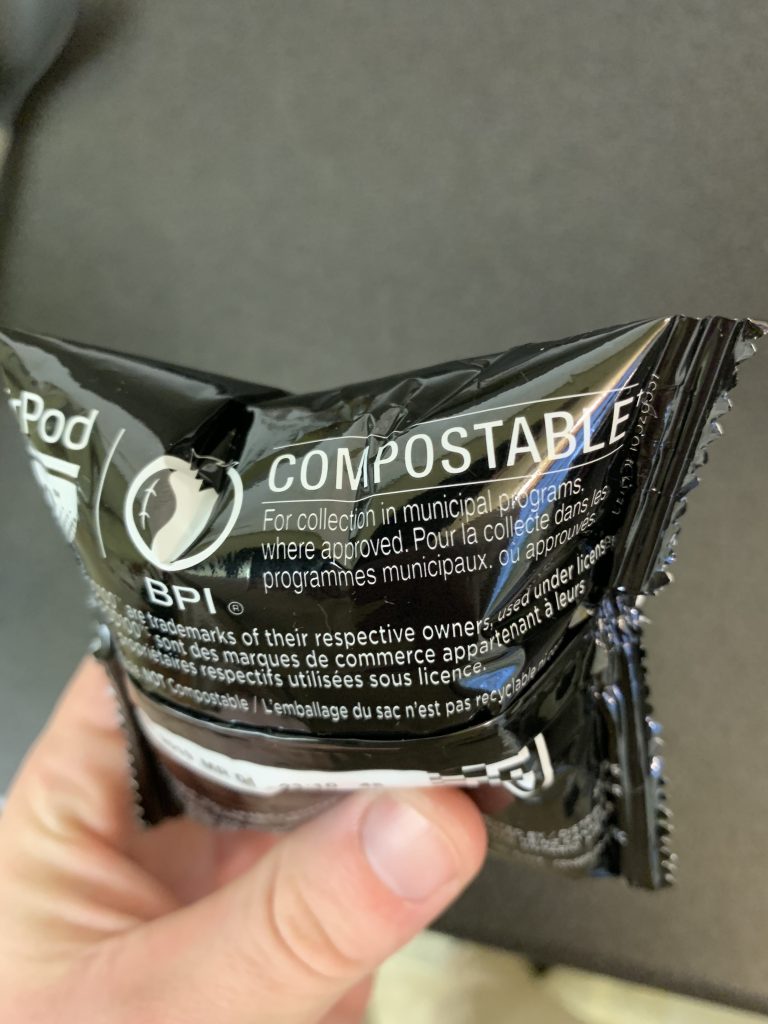This past week I was gifted a used a Keurig coffee maker and some accompanying coffee pods from a friend. Since I have had some time to use the Keurig machine, I am starting to see some of the issues related to Keurig coffee machines in regards to sustainability. Regardless, I believe that Keurig’s success mainly results from its idealness for people who drink less coffee and different times. In theory, this would reduce the amount of waste created from making excess coffee that is dumped out in a traditional coffee making process. However, the actual downsides concerning sustainability are huge for this product! Specifically related to the materials, we throw away after we get each cup of coffee. Traditionally, we might throw away excess coffee down the drain, and recycle the used coffee rinds and filter. All of these have the potential to be recycled easily. However what I noticed with my new Keurig machine was the waste created from the coffee pods or K-Cups. So this got me thinking on the mindset of Keurig’s sustainability. Thinking back, this reminded me of past class discussions where we talked about individuals who created items with good intentions, that inadvertently resulted in creating negative consequences towards being sustainable. The K-Cups initially were large plastic pods that could not have been recycled. Today however the K-Cups I bought were one hundred percent compostable. So Keurig has taken action is solving this issue which they created. However, even though K-Cups marketing highlighted that it is one hundred percent compostable, the K-cups still come individually packaged in plastic wraps. These wrappers also clearly say they cannot be recycled. I reflected on the larger situation. Yes, Keurig has addressed the issue of large plastic K-Cups, but they still, however, wrap each compostable K-Cups cup in plastic.
Begging the question, did this change do anything to make a difference in regards to sustainability, or was it more simply the greenwashing of this product? Lastly, I’d like to offer a solution. The reason for the plastic wrap is to preserve freshness which was achieved easily in the old plastic K-Cups. So to solve this issue why don’t retailers package the compostable cups in a similar way to how coffee grounds of the past were. For example a resalable coffee tin. What do you think?



KarinKeller
January 31, 2019 — 12:36 pm
I enjoyed reading about how Keurig decided to solve an issue it had created by making the K-cups biodegradable instead of additional waste, and especially appreciated how you touched on the limitation to their solution regarding the plastic wrapping on each individual cup that still remains.
I wonder why Keurig has decided to only solve half of the problem with these cups, and why they continue to rely on plastic packaging. Do you know if other alternatives to plastic wrap exist when it comes to maintaining freshness? And if so, why would a company such as Keurig decide not to go the extra mile by creating an entirely biodegradable or “green” product. Or is this biodegradable business purely a marketing stunt to keep up with the “trending environmentalism”? What do you think?
BradleyScheftner
February 1, 2019 — 11:27 pm
Thank you for the Feedback, as I eluded to in the article with the pictures, I feel since it is not Keurig directly instead McDonalds McCafe it was simply a greenwashing exercise fueled by Keurig Corporate to create a solution. I offered one solution in my original post but honestly, a simple reusable and resealable bag would probably work. However, in today’s world, we want easy and individual minimal products. Further, this “pod” idea is related to Keurigs success and probably also why consumers like the product on some level. Hopefully that helps, thanks!